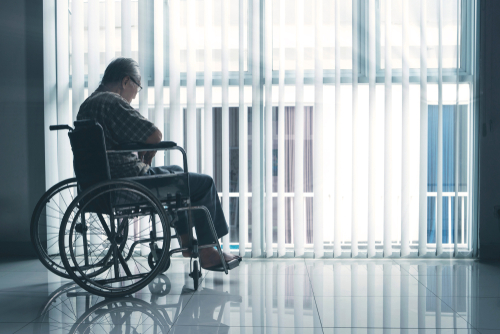Leaving Against Medical Advice: Can You Walk Out?
Category:

When you are sick enough to be in the emergency room or if you have been admitted to the hospital you are not looking for additional problems. But what happens if things aren’t going well? What if unforeseen circumstances arise that make you decide to leave the hospital against medical advice?
Your decision to leave presents questions you should ask yourself before you walk out the door.
- Can you leave the emergency room without being discharged?
- Can you leave the ER after checking in?
- Can you walk out of a hospital?
- Is it Illegal to walk out of a hospital?
- Can a hospital hold you against your will?
- Will Insurance pay if you leave the hospital?
Let’s begin by understanding what it means to leave the hospital against medical advice. Discharge against medical advice (DAMA) means you have decided to leave the hospital before your treating physician approves your discharge, or merely walking out after you have been assigned to a room or a space in the emergency room.
In most cases, the doctor and patient agree when the time is right for the patient to leave the hospital. When a person decides to leave the hospital prematurely, it is AMA or against medical advice. The patient may not agree with the doctor’s recommendations or plan of care, or there may be other reasons for walking out of the hospital impulsively.
The AMA label is assigned to a case to protect doctors and the hospital from potential liability. If the patient leaves the hospital before getting the all-clear from the attending physician there is a possibility of an ongoing illness, readmission to the hospital, or even death.
Preventing unsafe discharge from the hospital is always the best option. Speaking with the doctor, social worker or hospital administration can often resolve issues before the decision is finalized to leave against medical advice.
If you feel you are not receiving proper care, if you are a victim of hospital error, or if you do not agree with the treatment you are receiving, you should always file an official written complaint so there will be no doubt about your complaint or concern when your case is reviewed.
Hospitals take significant reportable events very seriously and will make every attempt to resolve your issues. Do not sign any documents relieving the hospital of liability until your needs have been addressed and you are satisfied with the resolution. Ask for a patient advocate to be sure you don’t overlook any important details.
What if I can’t afford the hospital bill?
Some people make the decision to leave when they realize the cost of their stay will far exceed what they can afford. If you are concerned about the financial burden of your stay, ask to speak with the financial aid department. They can help you come up with a workable plan so you can receive the care you need.
Sometimes there are personal reasons that can’t be resolved, such as fear of contracting a contagious disease or an overall fear or dislike of hospitals.
Unless you have a mental illness that causes hospital staff to determine you are an immediate threat to yourself or others, you have the right to refuse treatment or leave the hospital if you wish.
The final question you may have is this:
Download Our Occupational Therapy Guide
Will insurance pay if you leave the hospital against medical advice?
Many people believe that leaving the hospital AMA will result in the insurance company not paying for the time spent in the hospital. You may have heard leaving against medical advice will cause an increase in your premium. These are myths that have circulated for years, but the insurance company is responsible for coverage for the time you spent in the hospital and for any treatment you received. Click here for additional information regarding insurance and leaving the hospital against medical advice.
Subscribe
Date: February 3, 2022
Category:


